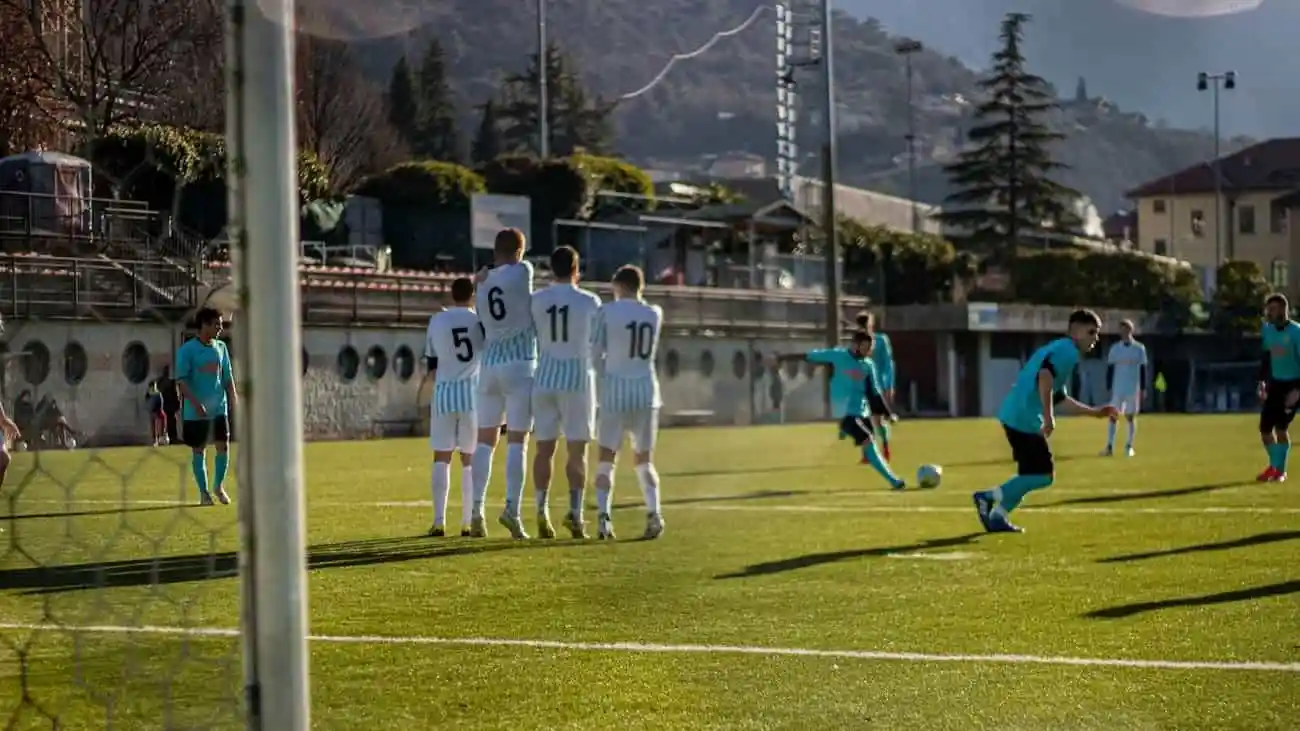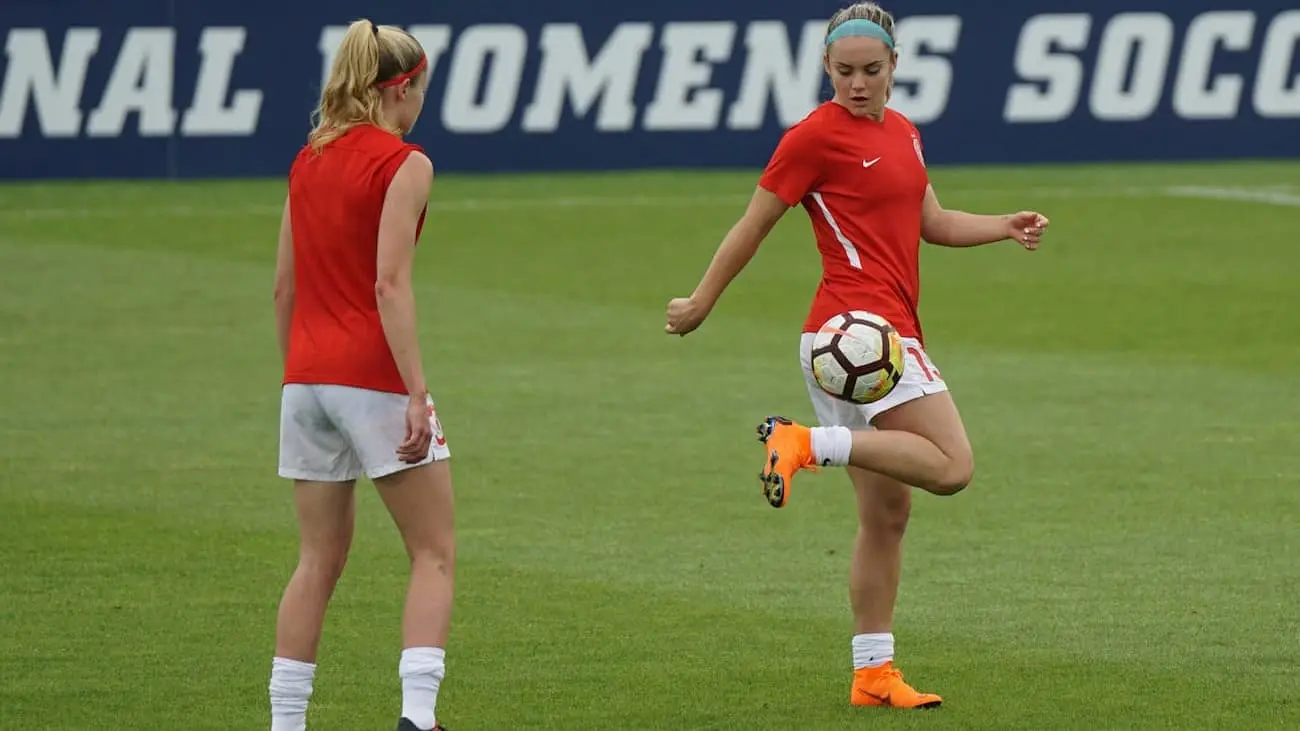ALTERNATIVE LEAGUES
Thiago Calderaro
The question arises as to whether, despite the traditional significance of fan involvement, fairness, and social engagement in football, alternative leagues and clubs can represent a real alternative to the German Football Association (DFB). The Confederation of Football, an alternative association from Leipzig, has positioned itself as competition to the DFB since 2018 and organises an independent game and tournament operation that relies on EU competition law. Aiming to rethink the football association, this approach challenges the DFB's monopoly and advocates for football that is more digital, service-oriented, collaborative, democratic, transparent, and independent. It begs the question of why there are concerns about competition between associations and emphasises the potential for positive change through competition that could make football less bureaucratic, more transparent, and more democratic.
In German football, where the DFB and the DFL with the men's Bundesliga are often seen as unassailable centres, alternative currents are emerging that call for a realignment of the game both on and off the pitch. Motivated by the desire for more participation, political and social engagement, and the shaping of the game, these movements question the monopoly of traditional associations on the sport. Inspired by the diversity in boxing, where athletes can win titles in four different associations, football fans and clubs are seeking new ways to express their love for the game.
Alternative Leagues in Germany
The Wilde Liga Bielefeld: Is Germany's oldest alternative football league, existing since the late 1970s. Unlike traditional leagues, it never formed as a formal club but is based on free and voluntary cooperation of committed individuals. The league places special emphasis on respectful interaction and inclusivity, welcoming all, regardless of personal characteristics or affiliations, to participate. The Wilde Liga Plenum, its highest decision-making body, meets four times a season to decide on rules and organisational details. Financing is provided through season contributions from the teams.
E-Jugend-Spaß-Erhaltungsliga: In the Freiburg-Hochschwarzwald district, a football league was founded by 14 clubs as direct resistance to the reforms in children's football by the South Baden Football Association (SBFV). This independent league, called "E-Jugend-Spaß-Erhaltungsliga" (ESEL), was created in response to dissatisfaction with the new rule changes. The ESEL follows traditional football rules, where children play seven against seven on two small field goals, with a season table being maintained. The criticism is directed at the SBVF's reforms, which, according to some, would lead to too many goals and thus less emotion and celebration at the games. However, the South Baden Football Association defends the reforms with the aim of increasing enjoyment of football and preventing children from dropping out of the sport. What the association's new rules envisage can be found in the following article: New Game Formats in Mini Football. The reforms are portrayed by Dr. Wolfgang Meyers - head of the league - as autocratic measures that leave no room for resistance, similar to historical examples of political suppression. He draws parallels to various authoritarian regimes to illustrate how people are made to follow regulations they do not support, by being led to believe that resistance is futile. Meyers argues that such reforms undermine the true spirit of football by minimising competition and the traditional team experience. He expresses concerns that these changes could reduce the engagement of players, coaches, and parents and that they would ultimately harm youth football rather than improve it. He emphasises that football is more than just ball contacts and technical skills; it is also about team spirit, competition, and the joy of the game.
Alternative Leagues in Switzerland
FSFV: The Progressive Swiss Football Association (FSFV) was founded in 1977 in Zurich as a counter-movement to commercial football. With an innovative set of rules that initially even dispensed with referees, rankings, uniform jerseys, and football shoes. Today, the association has 42 teams and over 650 members and members with a critical view of commercial aspects such as wearing brand jerseys.
Alternative Football League St. Gallen: Completely dispenses with referees, and the team captains are responsible for overseeing the rules and for reporting the results. "The offside rule is applied at discretion, Tiqui-taca is frowned upon, Catenaccio is doubtful, and Kick and Rush is desired. The league is played in four leagues, including the Bratwurst or Mustard League." The rules are flexibly applied, and the game operation is divided into various leagues that follow a relaxed and integrative approach to football, where fun and community are at the forefront.
Fenix Trophy in Italy
The FENIX Trophy is an annual football competition for amateur clubs, initiated by the Milanese football club Brera Calcio. The competition, which has been held since 2021, is characterised by each participating team having a charitable partner. It adheres to principles summarised in the FENIX acronym: friendly, European, non-professional, innovative, and xenial (hospitable). These principles reflect the intention to promote positive values such as social engagement, sustainability, and the fostering of friendship and mutual respect between different cultures beyond football itself. The trophy, symbolised by the phoenix, represents the idea of renewal and new beginnings in football. Participating clubs come from all over Europe and represent a counter-model to commercialised professional football, criticised for its over-commercialisation, alienation of fans, and lack of social responsibility.
Start your league now with the CoachingArea League Planner!
Sources
Continue Reading
This might also interest you:







